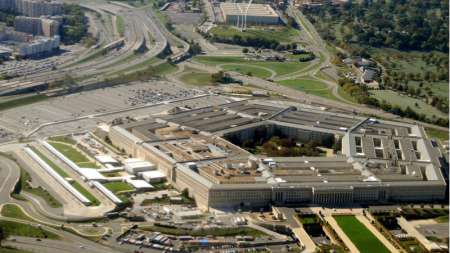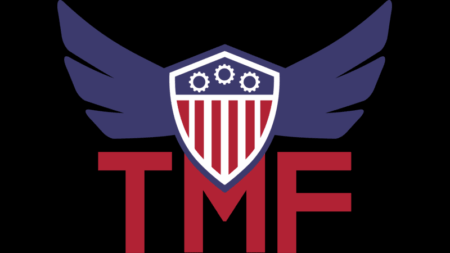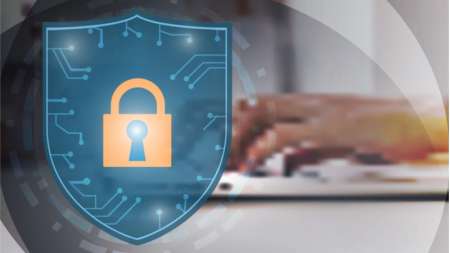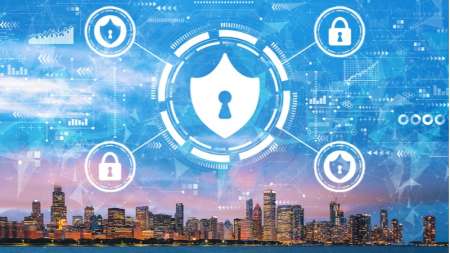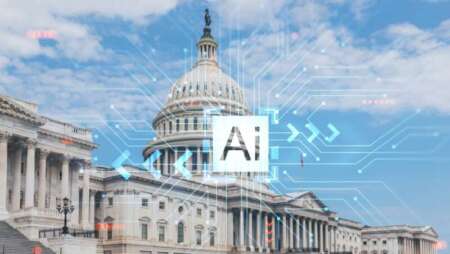By: Darren Guccione, CEO and co-founder, Keeper Security The United States is at a pivotal moment in its efforts to defend against modern cyber threats. Advanced Persistent Threats (APTs) from nation-states and organized cybercriminals continue to grow in both sophistication and scale, while many federal agencies operate with legacy acquisition models that struggle to keep pace […]
By: Venkat Sundaram, Netskope Although concepts like artificial intelligence (AI) and zero trust have existed in some form for years or even decades, we’re witnessing a continued evolution of both when applied to cybersecurity. This presents opportunities for the Department of War/Defense but also creates new challenges which will come to a head in 2026. With that […]
By: Supermicro Experts AI unlocks productivity gains for government organizations just as it does for enterprises—from service delivery to risk detection to day-to-day mission operations. According to Gartner, more than 60% of government organizations are expected to prioritize business process automation by 2026, up from 35% in 2022 (1). The Office of Management and Budget […]
Agentic AI is beginning to shift how federal agencies deliver on mission, moving beyond isolated prompts and pilots toward systems that can plan, act, and adapt alongside human teams. That shift is coming fast, and leaders are looking for practical, defensible ways to apply the technology in real programs. Drawing on advice from Dell Technologies […]
By: Tim Cook, executive director, Center for Procurement Advocacy As we approach the close of 2025, Congress faces a critical deadline that will shape the future of federal technology: The reauthorization of the Technology Modernization Fund (TMF). This is not just a budgetary line item—it is a strategic investment in the security, efficiency, and responsiveness […]
By: Tom Guarente, vice president of external and government affairs, Armis Recently, I was privileged to sit down with a high-ranking member of a key oversight committee who asked me what actions I thought Congress should take to address some of the country’s biggest cybersecurity challenges. I suggested they should begin by conducting a hearing […]
The rapid rise of AI is transforming enterprise applications and infrastructure at incredible speed. It is reshaping the marketplace of tools, software, and hardware, from sovereign clouds to the edge. From a toolchain perspective, the AI ecosystem is exploding. Thousands of offerings are emerging, with more introduced every day. Additionally, developers are rapidly updating their […]
By Dario Perez, VP Federal Civilian and SLED, Cloudera Artificial intelligence presents a transformative opportunity for government, from enhancing national defense readiness to improving citizen services and enabling data-driven decision-making at scale. However, to move from promising pilots to scalable, mission-aligned deployments, agencies must focus on what lies beneath the surface: trusted data and infrastructure. […]
By: Tony Orlando, GM Specialty Sales, Google Public Sector Government agencies rely on IT providers to provide secure, compliant, and efficient technology to help complete their vital missions. At the same time, cost-savings and productivity are taking center stage. These priorities – lower cost with better security and productivity – may seem at odds, but […]
By David Appel, Vice President of U.S. Federal at AWS For more than a decade, Amazon Web Services (AWS) has been at the forefront of enabling government agencies and their partners to deploy secure cloud services through the Federal Risk and Authorization Management Program, known as FedRAMP. This program provides a standardized compliance approach to U.S. […]
By Erich Kron, security awareness advocate at KnowBe4 The federal IT landscape is undergoing a significant transformation. Budget constraints and staffing reductions are pushing agencies to do more with less. For chief information officers (CIOs) and senior policymakers, the challenge is clear: maintain operational excellence and strong cybersecurity defenses while embracing tools that boost efficiency […]
By John Evans, Field Chief Technology Officer, State & Local Government, World Wide Technology It was previously assumed that nation-state actors primarily targeted federal agencies or major enterprises for their national secrets or big-ticket data, rather than investing the time, money, and resources attacking smaller organizations like local or even state governments. In recent years, […]
By Fadi Fadhil, Field Chief Information Officer at Palo Alto Networks and former CIO for the City of Minneapolis For many years, data retention has been a defensive game. To keep data safe, organizations have needed to protect their systems from outside cybersecurity threats like malware, phishing attempts, and ransomware attacks. This focus on guarding […]
By Dan Coleman, General Manager Federal Civilian at Microsoft Federal agencies are reimagining how they serve citizens and support their workforce by adopting unified digital platforms and AI-powered tools that foster collaboration, streamline workflows, and elevate service delivery. These technologies are empowering government employees to focus on mission-critical initiatives by automating repetitive tasks and delivering […]
By Nicolas Ojeda, Technology Business Management/FinOps lead, REI Systems William Kasenchar, principal, REI Systems As the White House seeks to cut spending and increase efficiency, government leaders should apply FinOps principles to seize the opportunity to optimize cloud service costs. This strategy, widely adopted in the private sector, presents an opportunity to save hundreds of […]
By Duncan Jones, Head of Cybersecurity at Quantinuum The latest quantum computing advances announced by U.S. tech giants and China accelerate both the potential threat and potential promise of this emerging technology. Now is a good time to make the distinction between the term “securing federal systems from quantum computing” and “securing federal systems using […]
By Brandon Bulldis, Federal Civilian Engineering Director at World Wide Technology From chatbots to call centers, many federal chief artificial intelligence (AI) officers have begun exploring how virtual AI assistants can improve both the employee and citizen experience. When successfully implemented, these tools have proven effective in getting citizens the swift support they need and […]
By Julie McCabe, Territory Account Manager, Panasonic Connect Cybersecurity threats to the United States government from a range of bad actors are escalating. In 2023 alone, the federal government reported more than 32,000 cybersecurity incidents – a five percent increase from the previous year. These attacks are not only growing in volume but also in […]
By Matthew Shallbetter, director of Strategy, Federal Civilian, at Armis With the profusion of directives and guidance emanating from government cybersecurity oversight agencies, both houses of Congress are proposing legislation that aims to harmonize cybersecurity regulations across the federal government. The Senate Homeland Security and Governmental Affairs Committee approved the ‘‘Streamlining Federal Cybersecurity Regulations Act” […]
By John Dvorak, chief technology officer, public sector, Red Hat Using AI safely and effectively is an open-ended challenge and government agencies can easily get overwhelmed with trying to develop AI strategies, hire or contract teams of data scientists, onboard chief AI officers and so on. But starting to build an AI strategy doesn’t have […]
Archives
- January 2026 (2)
- December 2025 (3)
- November 2025 (1)
- October 2025 (1)
- August 2025 (1)
- July 2025 (1)
- June 2025 (3)
- May 2025 (2)
- April 2025 (3)
- March 2025 (2)
- December 2024 (1)
- August 2024 (3)
- July 2024 (1)
- June 2024 (5)
- May 2024 (1)
- March 2024 (1)
- December 2023 (2)
- September 2023 (2)
- August 2023 (2)
- June 2023 (2)
- May 2023 (3)
- April 2023 (1)
- March 2023 (2)
- February 2023 (2)
- January 2023 (2)
- December 2022 (2)
- November 2022 (2)
- October 2022 (6)
- September 2022 (7)
- August 2022 (1)
- June 2022 (3)
- April 2022 (2)
- March 2022 (6)
- February 2022 (3)
- January 2022 (1)
- December 2021 (3)
- November 2021 (5)
- October 2021 (2)
- September 2021 (2)
- August 2021 (7)
- July 2021 (2)
- June 2021 (3)
- May 2021 (3)
- April 2021 (5)
- March 2021 (1)
- February 2021 (1)
- January 2021 (1)
- December 2020 (3)
- November 2020 (2)
- October 2020 (6)
- September 2020 (1)
- July 2020 (3)
- June 2020 (3)
- May 2020 (2)
- April 2020 (1)
- March 2020 (2)
- February 2020 (2)
- January 2020 (3)
- November 2019 (1)
- October 2019 (1)
- July 2019 (2)
- June 2019 (1)
- April 2019 (1)
- March 2019 (1)
- February 2019 (1)
- December 2018 (1)
- November 2018 (1)
- October 2018 (2)
- September 2018 (1)
- July 2018 (1)
- May 2018 (2)
- March 2018 (2)
- February 2018 (2)
- December 2017 (2)
- November 2017 (3)
- October 2017 (5)
- September 2017 (5)
- August 2017 (4)
- July 2017 (5)
- June 2017 (3)
- May 2017 (5)
- April 2017 (9)
- March 2017 (13)
- February 2017 (9)
- January 2017 (7)
- December 2016 (10)
- November 2016 (14)
- October 2016 (17)
- September 2016 (19)
- August 2016 (15)
- July 2016 (16)
- June 2016 (17)
- May 2016 (21)
- April 2016 (21)
- March 2016 (20)
- February 2016 (12)
- January 2016 (14)
- December 2015 (7)
- November 2015 (6)
- October 2015 (6)
- September 2015 (7)
- August 2015 (9)
- July 2015 (8)
- June 2015 (9)
- May 2015 (8)
- April 2015 (8)
- March 2015 (10)
- February 2015 (6)
- January 2015 (6)
- December 2014 (2)
- November 2014 (4)
- October 2014 (6)
- September 2014 (3)
- August 2014 (1)
- July 2014 (6)
- June 2014 (6)
- May 2014 (7)
- April 2014 (5)
- March 2014 (6)
- February 2014 (5)
- November 2013 (2)
- October 2013 (3)
- September 2013 (3)
- August 2013 (1)
- August 2011 (1)


